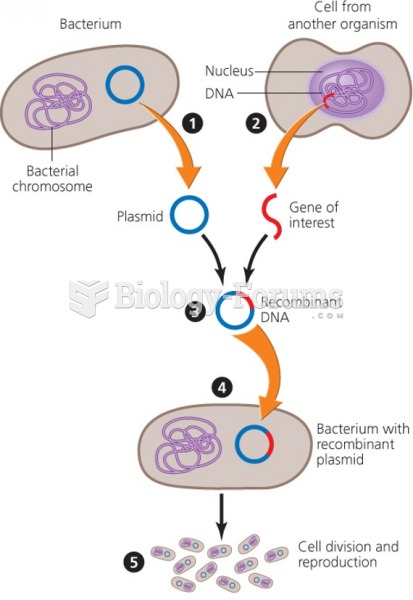This topic contains a solution. Click here to go to the answer
|
|
|
Did you know?
The average human gut is home to perhaps 500 to 1,000 different species of bacteria.
Did you know?
When intravenous medications are involved in adverse drug events, their harmful effects may occur more rapidly, and be more severe than errors with oral medications. This is due to the direct administration into the bloodstream.
Did you know?
Alcohol acts as a diuretic. Eight ounces of water is needed to metabolize just 1 ounce of alcohol.
Did you know?
In 1864, the first barbiturate (barbituric acid) was synthesized.
Did you know?
The horizontal fraction bar was introduced by the Arabs.
 Cholelithiasis. Common sites of gallstones in the generalized condition. (a) Stones in the hepatic d
Cholelithiasis. Common sites of gallstones in the generalized condition. (a) Stones in the hepatic d
 Rhytidoplasty. This is a common form of plastic surgery in which the skin is pulled and sutured to d
Rhytidoplasty. This is a common form of plastic surgery in which the skin is pulled and sutured to d





